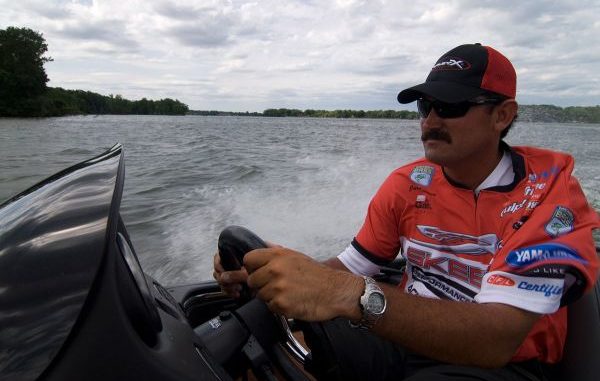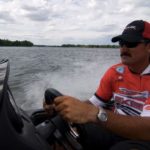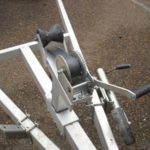
Take the time to make sure everything is in working order
Wildlife enforcement agents in Louisiana are provided with an abundance of training related to boating. Instruction in boat operation, safety equipment, accident prevention and investigation will begin in the academy and continue throughout an agent’s career.
What an agent might not learn in the classroom will be taught by experience on the water. And we don’t mind sharing that information for the benefit of the boating public.
So here we are in the month of May with boating season underway. This is a good time to run down the list of things to do in order to get through the summer safely, avoiding breakdowns and big inconveniences.
We will assume the reader is either an experienced boater or has successfully completed the Boating Safety Course, so I won’t bore you with rules of the road, lighting and navigation buoys.
Instead we will look at a few things not necessarily taught in class; rather they are preventive measures learned from actual everyday mishaps and from the toughest teacher of all — Mr. Murphy.
Before the fun can begin, we have to get from home to the lake, and that involves trailering the boat. So let’s perform a thorough trailer inspection. If this is the first time towing after the boat and trailer have been sitting in storage for a while, you might want to go over things a few days prior to the first trip to the lake.
Begin by checking trailer tires for rot, unusual wear and air pressure. And don’t forget the spare. Look at the bearings. Better yet, jack up the wheels and check for any wobble or noise such as squeaking or rubbing. If the wheel has Bearing Buddies, shoot a little bearing grease in, but don’t overfill.
A set of replacement bearings and tools in the vehicle are great. Another handy item is a Quick-Change Trailer Jack, sold for around $40. Hopefully, they will never be needed, but think about leaving your wife sitting with the boat and trailer on the side of the road while you go to the parts store for a new tire, wheel and bearings. Also think about how happy she will be for days to come after that little episode.
Move on to the trailer bunks. Those are the rails supporting the boat on the trailer. Look for rot, cracks, broken rollers and the bolts or welds attaching the bunks to the trailer frame.
How about the transom and bow tie-downs? I like a gunwale tie-down strap for added highway safety.
Next let’s check the trailer winch and make sure it hasn’t rusted solid. Whether it is equipped with rope, strap or cable, make sure they will handle the weight of the boat and won’t separate with the boat only three-quarters of the way up the bunks. I LOVE when that happens.
Trailer jacks rarely cause any problems, but do make sure the swivel swing-away type locks securely in both standing and stow-away positions. Those equipped with a wheel lock brake are great, particularly when disconnecting from the vehicle on an incline or uneven surface.
The trailer coupling is next. Make sure it is well lubricated and will lock securely on the ball. Oh, and make sure the ball and coupling match: A 2-inch coupling will slide right on a 1 7/8-inch ball. It will also pop right off at the first bump in the road (personal experience).
Also, make sure the coupling will come OFF the ball when you are ready to disconnect. They won’t always, and I LOVE when that happens, too.
Take a look at the ball and make sure it is snugged down tight on the receiver.
How about the pin and clip? I highly recommend the locking pin not only to prevent theft of the receiver but tampering, as well.
A few years ago an agent parked his truck and trailer at a boat landing and went on boat patrol. He returned to the landing, loaded on the trailer and was out on the highway headed for home when the receiver slid out of the hitch. Had it not been for the safety chains, boat, trailer and all could have gotten loose on the highway and caused a very serious accident or even death.
The pin and clip holding the receiver in the hitch were gone.
The agent had checked everything before leaving home, and pin and clip were in place. Someone, possibly someone he had cited for a violation, decided to remove the clip from the pin while the truck was unattended at the landing. The pin remained in place long enough for the agent to get out on the road before vibrating free, allowing the receiver to slide out.
So get a locking pin or check to make sure pin and clip are in place before towing.
Last thing on the trailer are the lights and license plate. Make sure the license plate has not expired, and check running, brake and turn signal lights. I don’t know about you, but trailer lights rarely work correctly for me.
Before leaving home, I usually check to make sure the drain plug is in place and my spare drain plug is right where I can find it.
The bilge pump gets checked too. Bailing isn’t any fun, and neither is trying to find a missing drain plug in a rapidly sinking boat.
We are almost ready to head for the boat launch. But before we go, attach the outboard motor flusher to the garden hose and cover the water intakes on the lower unit of the outboard. Get some water flowing through the outboard and start the engine. DO NOT dry start the outboard.
Did the battery have enough charge to start the engine? Did the engine start? If so, we’re all set to go to the lake.
We have all summer to further explore boating dos and don’ts and to talk about lessons learned from boating accidents and breakdowns.
So we’ll leave it here for now. Remember fishing licenses will expire June 30, and new licenses for 2014-15 are on sale now. New licenses are valid from date of purchase through June 30, 2015.




